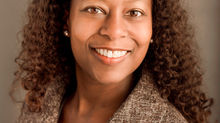Welcome Our New Team Member: Deb
- Deb Soszko, MT-BC

- Oct 8, 2021
- 4 min read
Last month we announced the major news that RhythmWorks Music Therapy is now part of Dynamic Lynks! We are so grateful for the opportunity to acquire this wonderful company and are eager to keep growing our school, in-home, and clinic offerings. In this major transition, we were lucky enough to add some incredible clinicians from RhythmWorks' team to our staff at Dynamic Lynks!
One of those being the incomparable, Deb Soszko. Deb is a seasoned clinician with over a decade of experience working with individuals of all ages across a variety of settings. She brings her incredible energy and years of knowledge to our team, and we are thrilled to have her! We asked Deb a few questions so our Dynamic Lynks family can get to know her better.

Q: Where did you grow up, and what brought you to the Chicago area? A: I grew up in Noblesville, Indiana, a town just outside of Indianapolis. I’d been obsessed with science and ancient civilizations since I was 5 and I wanted to pursue a degree in ancient history or archaeology. I decided I would move to Chicagoland, live with close friends I knew in this area, and get started at a community college (College of DuPage) while I worked to save up for my dream university. I got a job teaching science enrichment in elementary schools and realized just how much I loved working with children! Finding fun and creative ways to teach new concepts and seeing the students' growth made me revisit a research paper I had done in high school about the effects of music on the human body and a field of study known as “music therapy.” I decided to follow my gut, transfer to Illinois State University for 2 semesters, and see if music therapy was right for me. Within 2 weeks, I knew I was home. This was the career for me, and I’ve been living and practicing in Illinois ever since!
Q: Where did you go to college for your music therapy degree?
A: Illinois State University!
Q: What clinical populations do you have experience working with?
A: Children and adults with developmental disabilities, children and adults with autism, child and adolescent mental health, Early Intervention, EB/DB youth, Alzheimer’s care, adult mental health, children with hearing and vision impairment, and children and adults with traumatic brain injuries.
Q: What are your favorite instruments to use in Music Therapy sessions?
A: Guitar, paddle drums, cabasas, desk bells, and the ocean drum.
Q: What are your favorite skills to work on in Music Therapy sessions?
A: Communication! I always have visuals and white boards with me. I know core words in a few languages, and have a bit of ASL at my disposal so that I can offer different modes of communication to my clients and use what works best for them (and that may change day to day)! I believe the foundation to a client’s autonomy and quality of life includes confident communication; whether that is in the form of eye gaze, AAC, ASL, writing, etc. I ensure that I respect and reinforce that mode and am absolutely ELATED when I get to see a client’s growth and see their personality shine through their communication!
Q: If you weren’t a music therapist, what would you be?
A: I’d probably have continued studying ancient history and become an archaeologist or cultural anthropologist. I love learning about ancient civilizations, cultures, and how we humans have changed (and not changed!) over the millennia.
Q: What do you want the Dynamic Lynks family to know about you?
A: I embrace the silliness; I love bringing the silly out in my clients, improvising together, and yes I want to know that random fact/song/sound you want to share!
Q: What does celebrating neurodiversity mean to you?
A: To me, celebrating neurodiversity means encouraging and promoting each client’s autonomy and communication. Each of our brains work a bit differently and until we feel comfortable communicating, neurodiverse clients and staff working with them are likely to feel that they are “stuck”. Communication of need and preference is key to building independence, developing a rapport, and empowering a client to work toward their goals in a way that is meaningful to them. I work very closely with my clients and their staff to explain and model the most independent movement and communication as possible, using whatever mode works best for them (verbally, nonverbally, eye gaze, AAC, ASL, etc). I want to show my clients that I respect their personal/physical space, communication style, and learning style. The personal growth, personality, and humor that comes out of each client when doing this is priceless; sometimes it takes a lot longer but that is why I always say or write “take your time, I am patient!” Using this model can also help to show staff/family new facets of a client’s abilities, personality, and what works best for them in different environments.
Q: What are you most excited about joining the Dynamic Lynks team?
A: I’ve worked independently for quite a long time and I’m delighted to be joining a team that holds the same clinical values, and that shares our creativity, energy, and resources so we can all grow together and deliver the best services to our clients.
Deb currently provides services with our school contracts and we hope to add some individual clients to her caseload in the future! If you are interested in working with Deb, email us at info@dynamiclynks.com.














































Comments